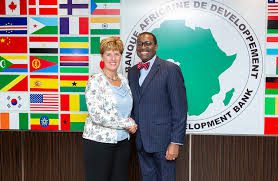The two parties recently signed an agreement worth $105.8 million to bring into fruition this project, which gives emphasis to gender.
By Ibrahima Dione
Initialed on March 17, the agreement will give rise to “a special transformative fund” according to a press release from the African Development Bank (AfDB).
This, the statement adds, will be capitalized thanks, on the one hand, to the combination of a repayable contribution of US$ 105.8 million aimed at granting concessional loans for both sovereign and non-sovereign operations, and on the other hand, a contribution of US$ 7.9 million for additional technical assistance.
The AfDB will be responsible for the administration of this new fund for climate change projects in Africa.
The deal was signed on the sidelines of the Canada-Africa Symposium on Clean Growth.
During the virtual ceremony, Karina Gould, Canada’s Minister for International Development, said: “Climate change is one of the most important challenges of our time. And although we are all affected by this phenomenon, we know that not everyone is affected in the same way. This means that the vulnerable and marginalized bear the brunt of this crisis more severely”.
Canada and the African financial institution plan to use the resources of this fund in “innovative low carbon technologies, renewable energy, smart agriculture, sustainable forestry, water management, and climate resilience projects.”
Akinwumi Adesina, the President of the AfDB, said that “rebuilding Africa after the Covid-19, climate resilience is very important.”
In addition, the Nigerian-born boss of the bank explained that the financial means deployed by Canada, one of the main non-regional members of the Bank Group, “are unique for the help (they) give us in our adaptation to climate change.”
In terms of climate finance, the African Development Bank aims to reach 40 percent by the end of 2021.
Between 2016 and 2019, its investment in this area quadrupled from 9 to 36 percent of its portfolio.
The AfDB has pledged to provide African countries with US$ 25 billion in climate finance by 2025.
The Canada-Africa Symposium on Clean Growth brought together leaders from the public and private sectors of this North American country and sub-Saharan Africa.
The exchange meeting aimed, according to the AfDB document, “to identify innovative ways to grow their economies, while reducing carbon emissions and strengthening resilience to climate change.”
ID/fss/as/APA


